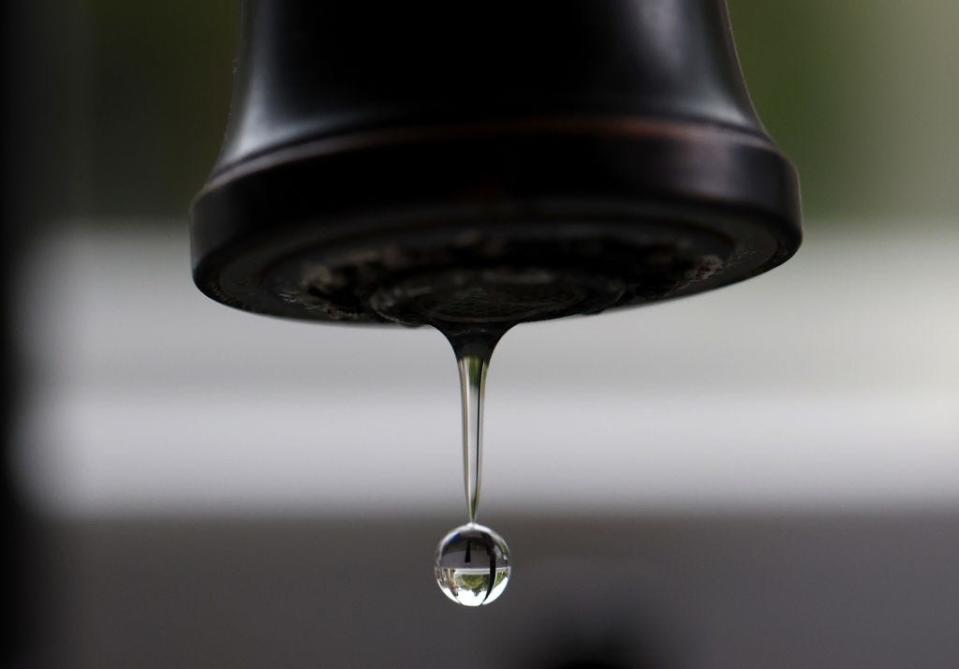Elevated lead found in Redford Township tap water; filter distribution under way
Redford Township, along with Wayne County and state of Michigan public health officials, will distribute water filters to residents and conduct free blood lead testing through Friday, after elevated levels of lead were found in township tap water.
The Pur and Brita water filters are available to residents from 2 p.m. to 7 p.m. through Friday at the Redford Township Community Center, 12121 Hemingway. A mobile health unit from the Wayne County Health Department will also conduct blood lead testing.
During periodic testing of tap water in township homes for lead and copper, in accordance with the federal Safe Drinking Water Act, the township Water Department collected samples from 31 homes with old, lead service lines.

Federal rules for lead and copper in water go by 90th percentile readings. All test samples are ranked from highest levels of lead to the lowest; the total number of tests taken is multiplied by 90%, and whatever lead level that number sample has is the reading upon which regulators rely.
How much lead in water is toxic?
The 90th percentile sample of the Redford tap water was 22 parts per billion, exceeding the federal and state action level of 15 parts per billion, at which local governments are required to do more to find sources of lead and reduce lead levels in water. Four of the homes tested in Redford had lead levels above the 15 parts per billion guideline.
According to the federal Centers for Disease Control and Prevention, no safe level of lead in children has been identified. Adverse effects from excessive exposure to the heavy metal include:
Damage to the brain and nervous system.
Slowed growth and development.
Learning and behavior problems.
Hearing and speech problems.
High lead exposure also has been tied to lower IQ, decreased ability to pay attention and underperformance in school.
The consequences of children in Flint drinking lead-tainted water for at least several months are still being evaluated. A 2021 study by the Yale School of Public Health found that children born to mothers who were exposed to the contaminated water in Flint had a significantly lower birth weight on average compared with those in other cities — and Black babies were disproportionately impacted by the exposure.
Redford is replacing lead service lines to homes
Lead can enter drinking water when in contact with pipes, solder, interior plumbing fittings and fixtures that contain lead. Homes with lead service lines have an increased risk — and the longer the water has sat in pipes without moving, the more lead it may contain.
Redford Township had already begun a program to begin removing old lead service lines in the community before the recent findings of elevated lead levels in tap water, Township Supervisor Pat McRae said.
"We are actively working to get those lead service lines out of commission," he said.
"Lead lines have been in the ground for decades. To identify and fix that problem is going to take time. But so long as there is funding available, we are going to try to quickly move on this, because we do not want our residents to be at even the slightest risk."
The township's tap water is provided by the regional Great Lakes Water Authority. Terry Daniel, deputy chief operating officer for the authority's Water and Field Services, in a statement emphasized "that there is no lead in the water that the authority distributes throughout southeast Michigan."
The authority tests its water multiple times each day and optimizes corrosion control throughout its regional system to address lead and copper, he said.
More: Neglect, mismanagement, dangerous mistakes doomed Benton Harbor's water
In addition to water filters, lead in tap water risk can be reduced by running water before drinking or cooking for 30 seconds to two minutes for homes known to not have lead service lines; for at least five minutes for homes with lead service lines.
The Michigan Department of Health and Human Services recommends that every home use a certified lead filter to reduce lead in drinking water, particularly those homes with children or where children may visit frequently; households where someone is pregnant; homes with residents with high blood pressure, or those living in homes built before 1987.
Eligible residents unable to attend the on-site lead filter distribution this week can pick up a faucet water filter beginning Nov. 6 at the Leo Snage Public Services Building at 12200 Beech Daly Road in Redford between the hours of 8:30 a.m. and 4:30 p.m. Monday through Friday.
The Redford Township Water Department will begin collecting water samples from 60 homes every six months and review the results to determine whether corrective actions are necessary to reduce corrosion in household plumbing. Redford Township water customers who would like their service line inspected can contact the department at 313-387-2670.
Contact Keith Matheny: kmatheny@freepress.com.
This article originally appeared on Detroit Free Press: Blood testing, filter distribution after lead finding in Redford water

